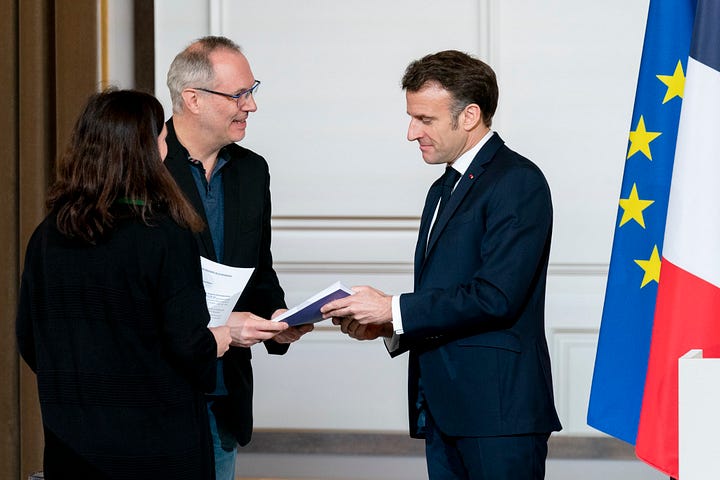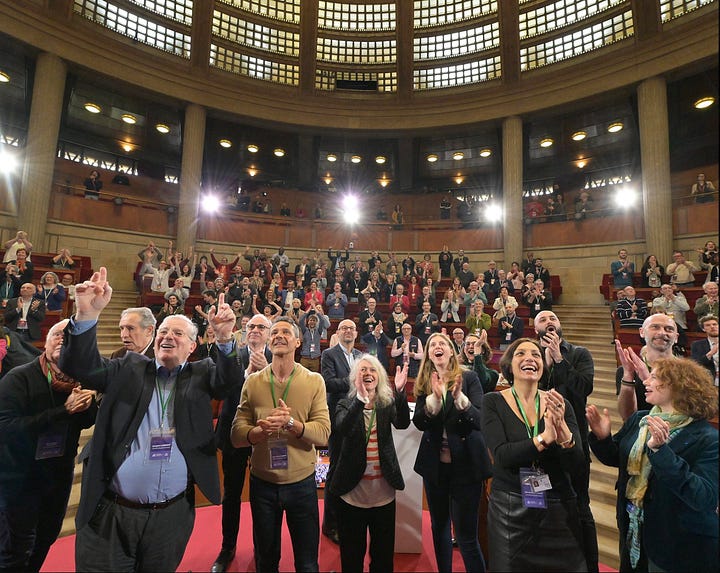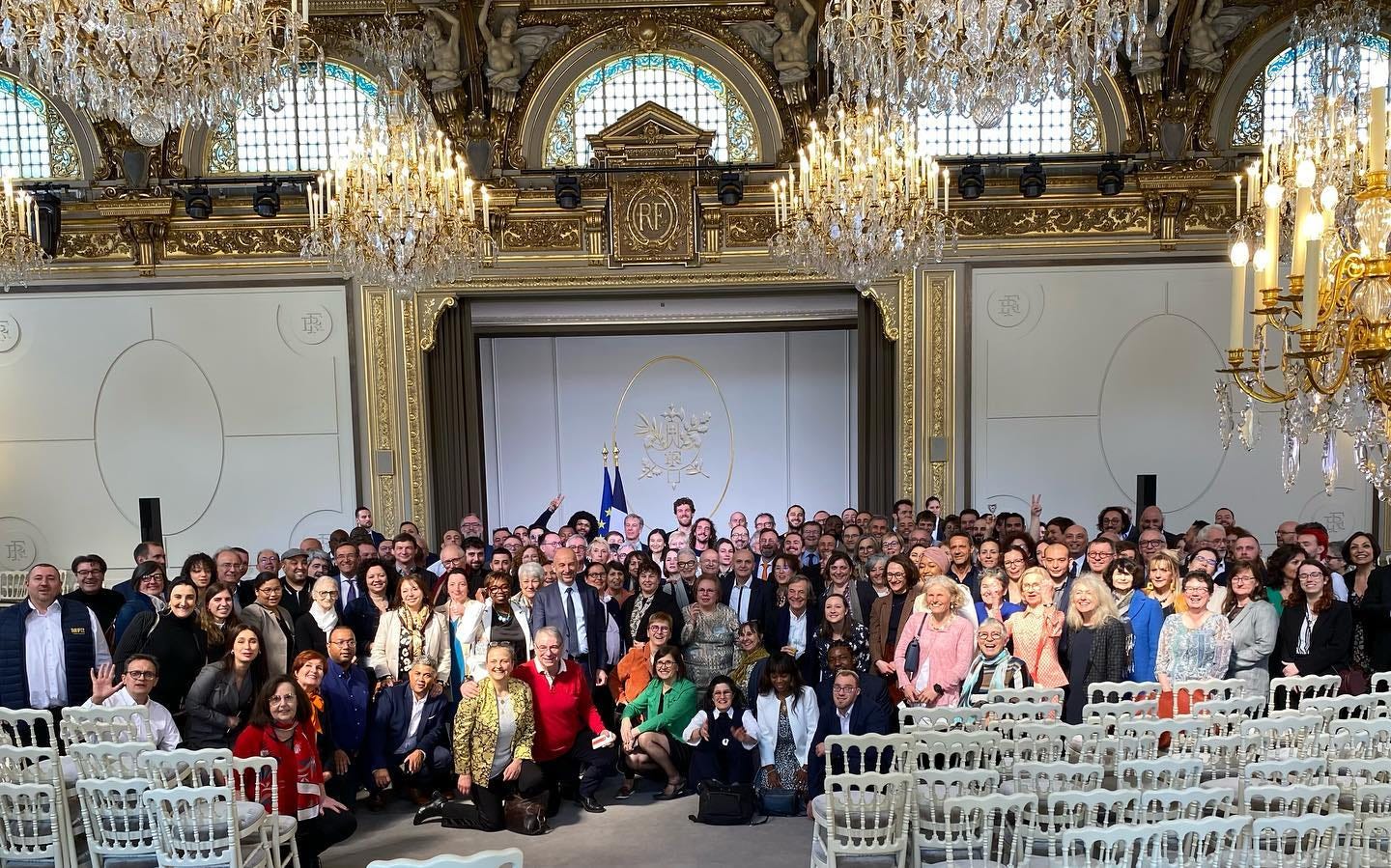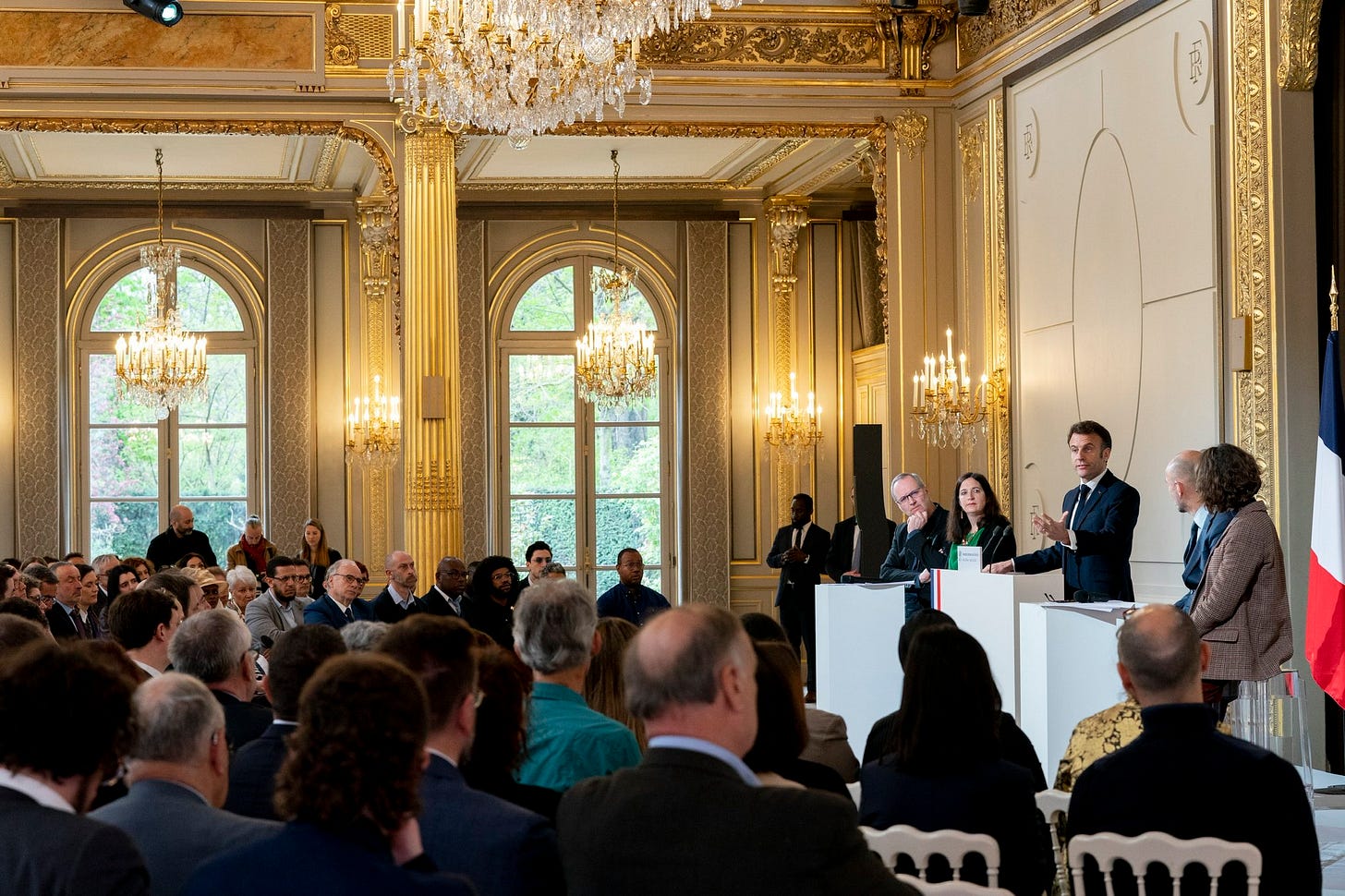Democracy in France!
Beyond headlines about protests, Citizens' Assembly members deliver their final report to Macron


Despite making headlines around the world for street protests in recent weeks, democracy continues to develop in France with the conclusion this week of the French Citizens’ Assembly on End of Life issues.
After deliberating for 27 days spread across 4 months, 184 randomly selected citizens from across France reached a stunning 92% consensus around 67 recommendations.
The citizens concluded that France's existing legislation should be reformed to allow for both assisted suicide and euthanasia. Their recommendations also delve into related details, such as the conditions under which this might be possible, inclusive access, necessary budgetary resources, investment in palliative care, improved conditions for healthcare workers, more research on these issues, and better public information.
President Emmanuel Macron invited the Assembly Members to receive their recommendations at the Presidential Palace. In his remarks, Macron said the citizen members had “perfected and brought to maturity” the democratic innovation of Citizens’ Assemblies. Macron said he wants to use the assembly’s recommendations to form the basis for new legislation to be introduced by the end of the summer. He also promised to hold more assemblies to tackle other issues.
Background
This Citizens’ Assembly was convened after France’s National Ethics Committee had a fierce debate, which resulted in a recommendation in 2022 to reform laws which banned euthanasia and assisted dying. But with a divided public debate on the issue, Macron announced that a Citizens’ Assembly would examine it in depth to provide the government with recommendations on whether, and if so, how, the existing legislation should be amended.
Half of the final report includes space for the minority view. 184 out of the original 185 members participated from start to finish — only one person dropped out, due to a change in employment that prevented continued attendance.
The assembly heard testimony from medical experts, doctors, nurses, associations, people living with chronic illness and incurable diseases, as well as from faith leaders and philosophers. Assembly members deliberated in small groups and as a larger group to define their collective recommendations.
The full report of the French Citizens’ Assembly is available here.
Our perspective
Here’s our take on how the assembly unfolded and the results:
“Another Citizens’ Assembly — another successful exercise of democracy that can give us all hope,” said Claudia Chwalisz, DemNext Founder and CEO. “It’s hard to avoid the conclusion that Citizens’ Assemblies hold great promise and we should work to organize more of them if we are to begin to address the polarization and anger that is growing under the current system. President Macron’s statements are greatly encouraging; the most important thing now is that the French citizens who spent their time and energy in this assembly are listened to, and that we continue to empower more citizens to deliberate and shape public decisions.”
DemocracyNext Strategic Advisor Hélène Landemore sat in on the assembly’s proceedings and served on its governance committee. She told DemNext:
“This convention marks in France the end of the experimental phase and the entry into a more institutional phase in which the recourse to deliberative democracy will be normalized. The Convention on End of Life is now going to be a benchmark for any future assembly, in France and, hopefully, abroad as well.”
Our board member Hugh Pope, who was also an observer of the assembly, commented:
What a success! France’s Citizens’ Convention on the End of Life proved how effectively – and joyfully – an assembly of randomly selected citizens can inform themselves, deliberate & reach a clear, inclusive decision on a tough policy question. #sortitionworks #democratichope
Reaction in France
The conclusion of the assembly received widespread coverage in the French media; President Macron tweeted about it as well.
The newspaper Le Monde editorialized in support of the process: “Government and MPs should respect the informed debate. The seriousness of the work done by the Citizens’ Assembly on End of Life members demonstrates that it's possible to escape from terse polemics and Manichean arguments.”
Assembly members were interviewed in various outlets: a nurse from Toulouse spoke to France Bleu, another appeared in La Depeche, and more were interviewed on television.
Alexandra Tubiana spoke on the program Quotidien, explaining that she was opposed to a number of the assembly’s recommendations, but accepts the outcome and still voted in favor of the final report because of the legitimacy of the democratic process:
"It's democracy, it's the game. In this assembly, everybody was listened to. When you read the report, there is a large part of the work that is about palliative care. It's because of this that those of us who were against some of the measures voted in favour overall, because we felt that we were really listened to."
All in all, we think this is an incredibly encouraging moment — for democracy in France and for others who may be able to learn from this example! Let us know your thoughts in the comments.







How wonderful that the experimentation with Citizens Assemblies in France now has led to this incredible result. I hope that the necessary change of laws will follow soon.
I congratulate the French people with the result of this new democratic process on an ethically difficult topic. It is great to see a randomly chosen group from the general population has been able to come to consensus! I am looking forward to the expansion of the scope of this type of active participation of the public in the democratic process.